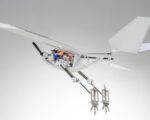Maruti Suzuki Announces Car Price Increase of Up to 4% in India, Effective January 2025

In response to increasing input costs and operational expenses, Maruti Suzuki India Limited has announced that it will raise prices across its vehicle lineup starting January 2025. The price hike, which could be as high as 4 percent, will vary by model, as stated in the company’s official announcement. This decision comes as part of Maruti Suzuki’s ongoing efforts to navigate the challenges posed by rising manufacturing costs while ensuring that customers continue to receive high-quality vehicles.
Despite the price increase, Maruti Suzuki emphasized that it remains committed to optimizing costs wherever possible in order to minimize the impact on consumers. However, the company acknowledged that it must pass on some of the rising costs to the market in order to maintain its operations and uphold the standards of quality that have become synonymous with the brand. The price hike reflects the broader pressures on the automotive industry due to inflationary factors and other economic challenges.
The announcement follows Maruti Suzuki’s positive sales performance in recent months. In November 2024, the company reported a total of 181,531 vehicle sales, with 144,238 units sold domestically. This marks a solid increase from 134,158 units sold in the same month the previous year. However, the company’s sales figures did show a month-on-month decline from October 2024, when it achieved 159,591 units. Despite this, Maruti Suzuki’s strong growth in passenger vehicle sales highlights the brand’s resilience in a competitive market.
Maruti Suzuki’s price increase comes in the wake of similar moves by other automotive giants in India. On December 5, 2024, Hyundai Motor India Limited (HMIL) announced a price hike of up to Rs. 25,000 for its Model Year 2025 vehicles, effective from January 1, 2025. HMIL attributed the hike to rising input, logistics, and transportation costs, further compounded by unfavorable exchange rates. Like Maruti Suzuki, Hyundai emphasized its efforts to absorb costs where possible but noted that the adjustment was necessary to mitigate the ongoing financial pressures facing the automotive industry.




















